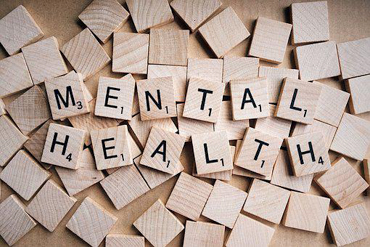Steffi Schranz ◄
Are you currently healthy? If yes, who decided so? And if not, who decides what the best care for you is? Well, according to the World Health Organization, health is the state of complete physical, mental and social well-being, and not just the absence of disease. This means, treatment options should involve more than just tra- ditional medicine. It makes sense, therefore, that the currently accepted theoretical construct we use to look at health, and in turn illness, is the biopsychosocial model. It seeks the reason for you feeling unwell not just in your body and its biology, but also in your mental state as well as your surroundings. It recognizes that a toxic work environment or your relationship breaking apart can play a part in the development of a physiological illness just as likely as if you are a regular smoker of cigarettes. In theory, this sounds very nice. But what does the practical reality look like?

As a psychology student, I had to complete a six-week internship. I chose to join a clinical psychology team in a rehabilitation setting closely linked to a hospital. With regard to the “psycho” part in the bio-psycho-social model, I was able to gain some first-hand experience of its implementation and I discovered that it was very much “bio” first. For example, it was a daily occurrence that doctors ordered consultations with a psychologist because the patient seemed to be in distress or in dire need of counselling. However, in the great majority of these cases, once we actually talked to the patients, it turned out they were just fine. They did not have a need (or want) for counselling, and often times were confused as to why their doctor ordered us to check in on them. It appears that doctors decided what patients need without consulting them first. Often, doctors just saw the diagnosis of cancer in the patients’ medical history and jumped to the conclusion that they desperately require therapy, despite the fact that patients often already are in therapy privately, have a well-established rapport with their therapist, and the often short duration of their hospital stay would not allow enough time to build the connection needed to really help them. Even worse, when doctors did not get along with a patient, they often recommended a talk with the psychologist that would fix their “uncooperative” attitude. In itself, it is not a bad thing that psychological professions are getting involved in patient care. Actually, it is really great! It supports the fact that mental health is starting to be recognised as an important factor in overall well-being. But the issue is that psychological care often happens for all the wrong reasons. Moreover, if it is not about the diagnosis of a mental illness (for which the council of psychiatrists is preferred), a psychologist’s input is not asked for. The psychological factor in a patient’s well-being only comes into play, when all the biological options are exhausted. If the treatment of the symptoms of psychosomatic illnesses does not work, maybe then the actual cause gets addressed. Thus, not only do doctors decide what the patient needs without asking them but non-medicinal treatments are also seen as a last resort. The consultation requests I witnessed during my internship were seldom in accordance with the patient’s needs but a way for doctors to pass off an aspect of care that they either did not want or have the time to deal with. It is hard to say whether our healthcare system does not allow medical professionals to fully care for their patients because time as a resource is limited and additional resources cost money or if doctors themselves simply look down on non-medicinal forms of health care (and I did meet a fair share of those who see psychology as a waste of time).
We recognize that a healthy mind is part of our overall well-being.
But no matter the reasons, it speaks to a flaw in how we give care. If others can decide over our subjective needs without consulting us first, it takes away our agency. And upholding agency is one of the most important things when already facing the many constraints that come with being ill or injured. At the same time, it calls attention to the narrow-minded view on illness that is seemingly still perpetuated when even doctors do not care to look outside their own discipline in order to treat their patients in the most effective way.
We have come a long way when it comes to mental health. People speak openly about being in therapy and it is not just seen as an indicator of being mentally ill, but rather to practise mental hygiene. We recognize that a healthy mind is part of our overall well-being. But looking at its significance in traditional medicine, it seems that there is still a lot left to change for the better.







